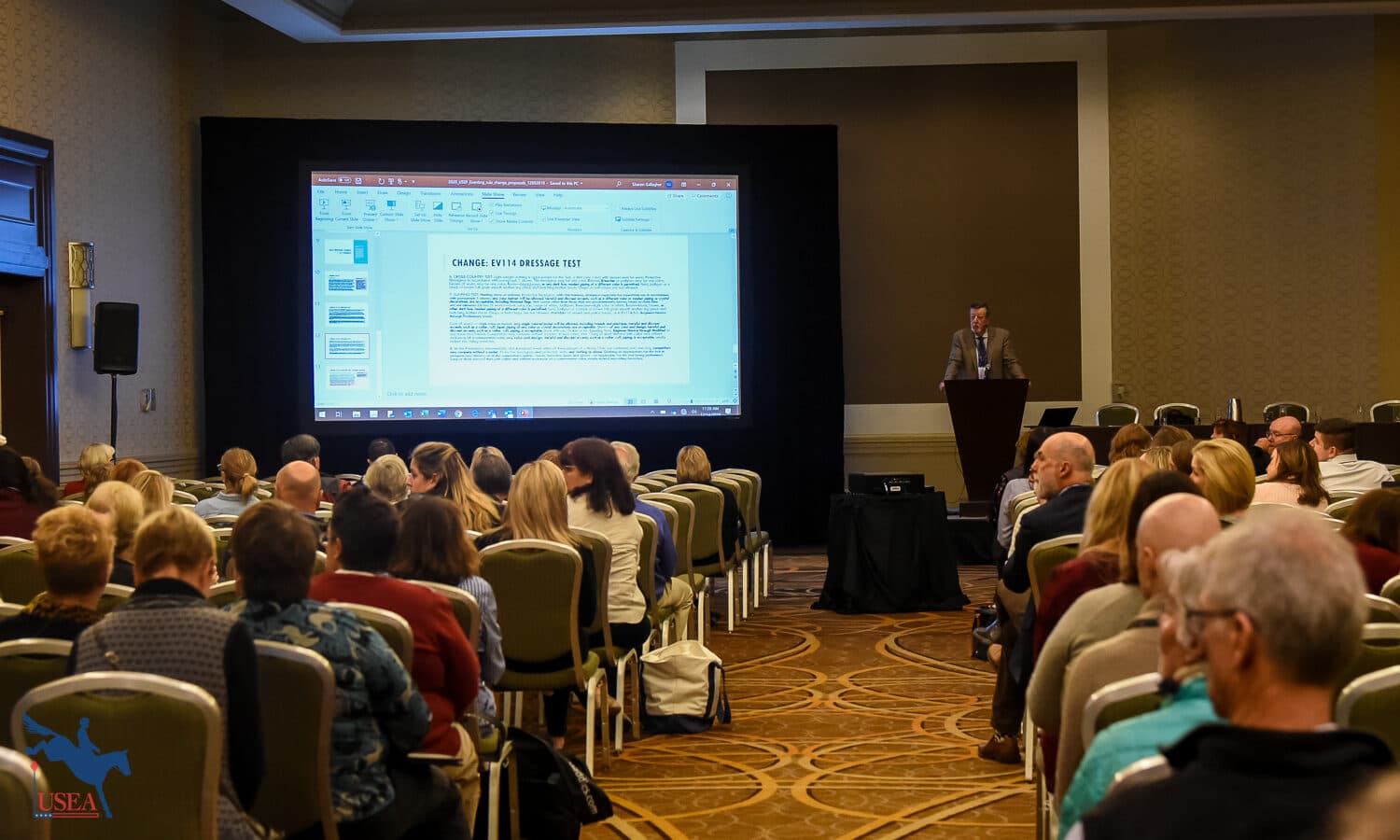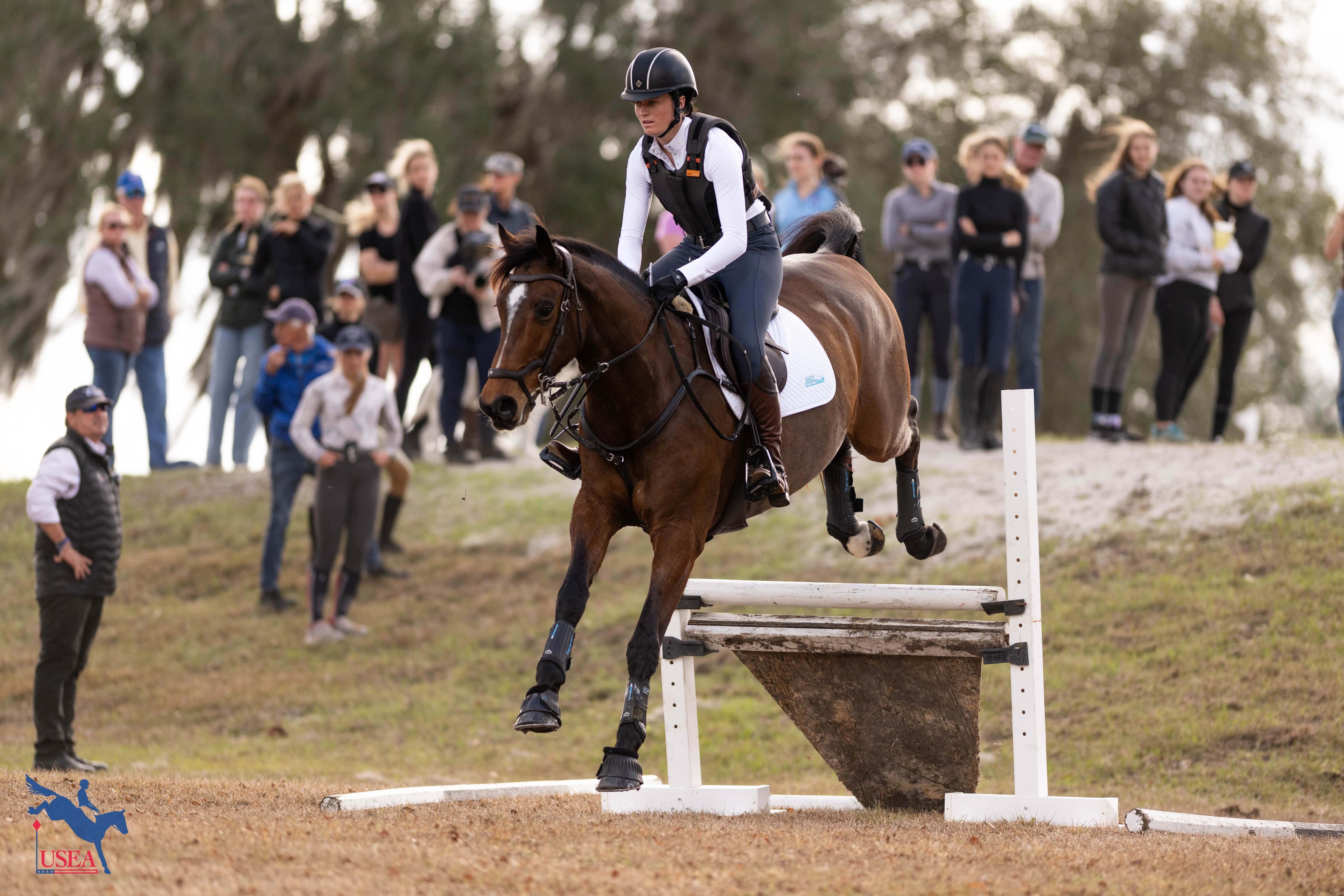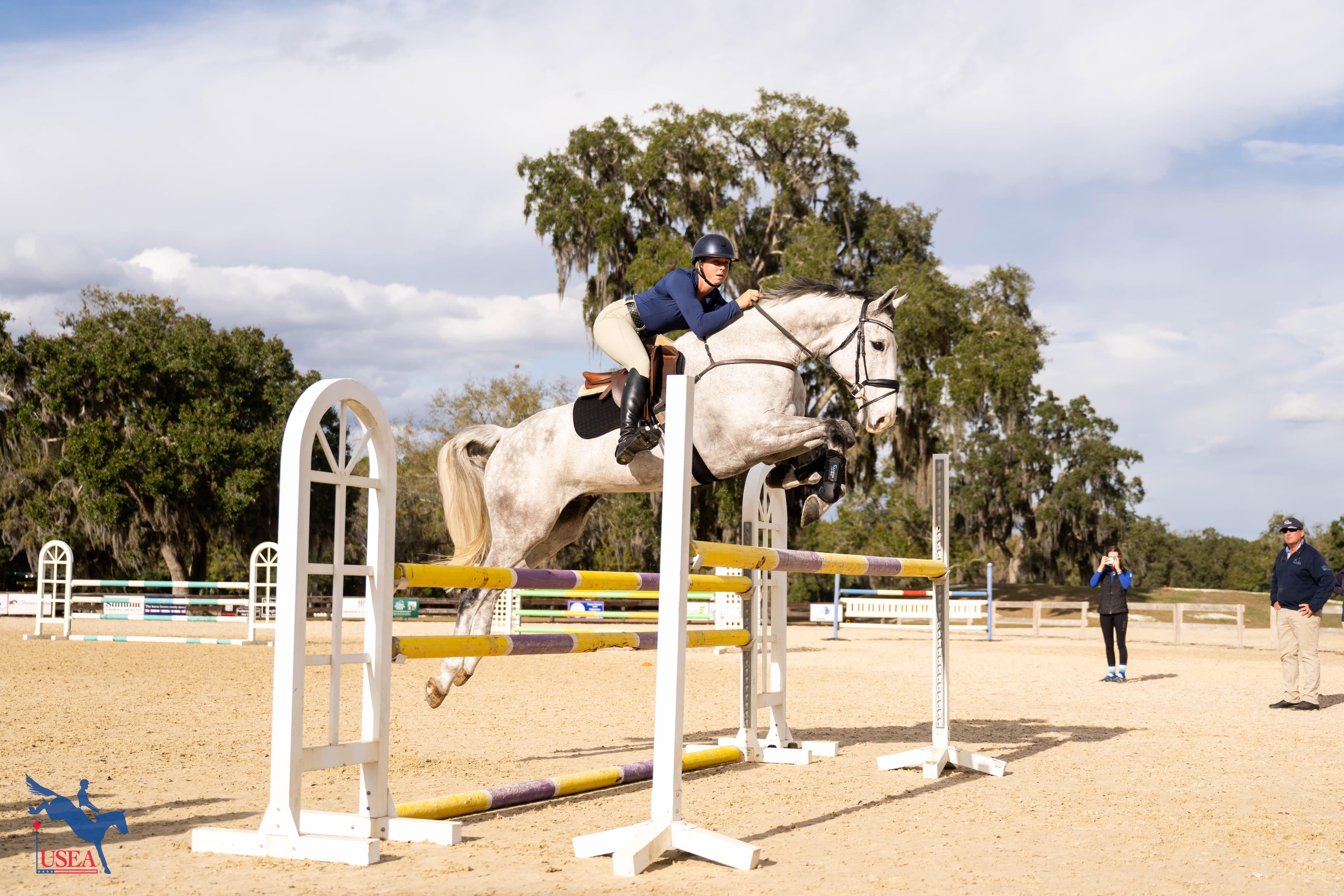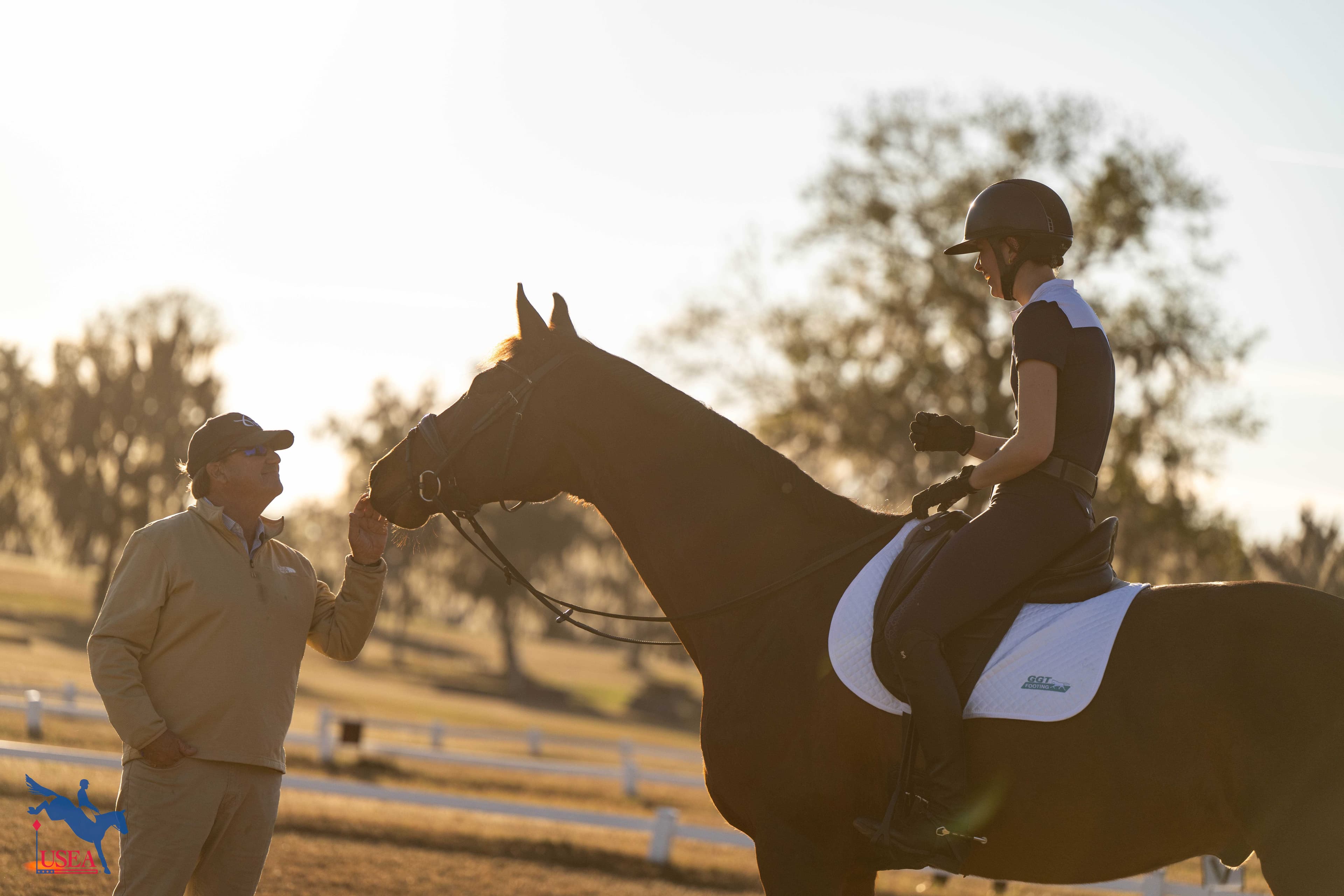Rule Changes for 2021 Discussed at the Rule Change Open Forum

Each year at the USEA Convention, the Rule Change Open Forum looks to the future to discuss changes to the USEF Rules for Eventing for the upcoming competition season. Convention attendees have the opportunity to hear which changes are coming down the pipeline and have their questions answered.
Below are summaries of the current proposed changes to the USEF Rules for Eventing. Unless otherwise stated, the rule change proposals are being considered to go into effect on December 1, 2020. All rule changes documentation can be found on the USEF website.
EV 113: Medical Requirements
The modifications to this rule mean that you are no longer required to wear a medical armband or medical bracelet if you do not have any major medical conditions that first responders need to know about. This change is designed to reduce the burden on competitors by requiring only competitors with medical conditions to wear a medical data carrier or a medical armband.
EV 115: Saddlery
Under the rules for cross-country and jumping tests, this change would expand the rule stating, “Any device which does not allow an immediate and unrestricted separation of the Athlete’s boot from the stirrup in case of a fall is forbidden. There must be no other restrictions or attachments of any kind,” to apply for both cross-country and show jumping. Wording will also be changed to simply state, “Any device which does not allow an immediate and unrestricted separation of the Athlete,” so as to expand the rule to cover any device which might prevent the rider from separating from the horse in the event of a fall. This is a modification of the USEF rules to match the existing FEI rules.
EV 141: Cross-Country Scoring
The activation of a frangible device would now incur 11 penalties. This is a modification of the USEF rules to match the existing FEI rules. This modification has not yet been put through to the USEF Rules Working Group or the Eventing Sport Committee.
EV 175: Cross-Country Course Designer
Currently, USEF Eventing Rules require a Licensed USEF Jumping Course Designers or EVJCD to design the Jumping course for Intermediate and Advanced Horse Trials. The change to this rule clarifies that Eventing Cross-Country Course Designers are not permitted to design Jumping courses for Intermediate and/or Advanced Horse Trials unless licensed accordingly. In addition, the change confirms that the responsibility for the Jumping course at the Intermediate and Advanced levels lies with the EVJCD or Jumper Course Designer, whichever is applicable.
EV 176: Eventing Jumping Course Designer
Currently, USEF Eventing Rules require Licensed USEF Jumping Course Designers or EVJCDs to design the Jumping course for Intermediate and Advanced Horse Trials. The change to this rule broadens the requirement to allow FEI Jumper Course Designers to design courses at these levels.
APPENDIX 3
The FEI has provided separate MERs for “A” Athletes wishing to compete horses which have previously achieved a MER at a CCI5*-L and those which have not. This is a modification of the USEF rules to match the existing FEI rules. Note, this rule may be put into effect in 2020 as an extraordinary rule change.
The USEF Eventing Sport Committee has also provided feedback on the following rule change proposals.
EV 114: Dress
The language has been relaxed to allow a wider variety of dress options for competitors in the dressage test and jumping test including any color helmets, discreet accents on the jacket, and any dark hue boots. Members of armed and police forces will be allowed to wear service dress with gloves, regulation headgear, and spurs in accordance with EV114 at the lower levels (Beginner Novice-Preliminary). The extreme weather rule has also been clarified to include expanded dress options.














